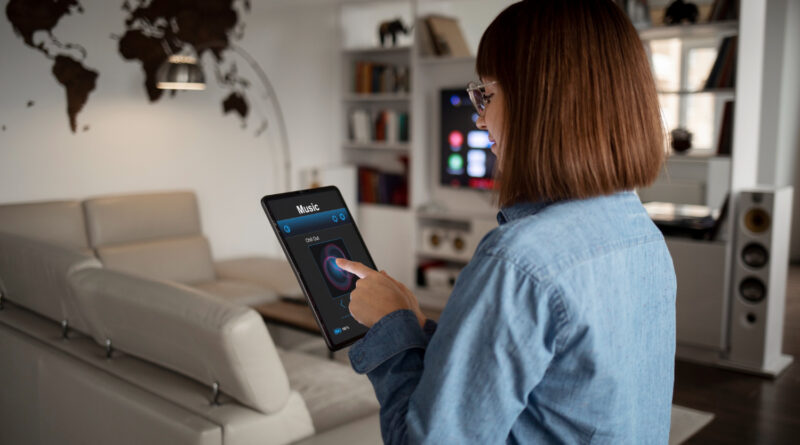A Smart Home is more than just a trendy concept – it’s a practical solution that can make your life easier, safer, and more energy-efficient. Imagine controlling your lights, heating, and security systems with just a tap on your smartphone, or having your home automatically adjust its settings based on your daily routines. In this article, I’ll explain what makes a home “smart” and explore the benefits that might convince you to transform your living space into an intelligent environment.
Spis treści:
What Exactly Is a Smart Home?
A Smart Home is a residence equipped with devices and appliances that you can control remotely through an internet connection. These connected devices can communicate with each other and with you, creating an ecosystem that adapts to your lifestyle. Think of your home as a helpful assistant that remembers your preferences, anticipates your needs, and helps you manage your daily tasks more efficiently. From smart thermostats and lighting systems to security cameras and automated window blinds, each component works together to create a more comfortable and convenient living environment.
Main Benefits of Smart Home Technology
The advantages of having a Smart Home extend far beyond mere convenience. First, you can significantly reduce your energy consumption by automating your heating, cooling, and lighting systems. Your smart thermostat can learn your schedule and adjust temperatures accordingly, while motion sensors can ensure lights aren’t left on in empty rooms. Security is another major benefit – smart cameras, door locks, and alarm systems can provide real-time monitoring and alerts to your phone. Additionally, these systems can help elderly or disabled residents maintain their independence by automating routine tasks and providing emergency assistance features.
Getting Started with Smart Home Technology
Beginning your Smart Home journey doesn’t require a complete home overhaul. You can start small with a few basic devices and gradually expand your system. A good starting point might be a smart speaker with a virtual assistant, which can serve as your central control hub. From there, you might add smart bulbs or a smart thermostat. The important thing is to identify which aspects of your daily routine could benefit most from automation. Consider your specific needs and lifestyle when choosing devices – there’s no one-size-fits-all solution in the Smart Home world.
Common Concerns and Considerations
While Smart Home technology offers numerous benefits, it’s important to consider potential challenges. Privacy and security are essential concerns – any internet-connected device can potentially be vulnerable to cyber attacks. Therefore, it’s crucial to choose reputable brands and maintain strong network security. Compatibility between devices from different manufacturers can also be an issue, so research which systems work together before making purchases. Additionally, while Smart Home technology can save money in the long run through energy efficiency, the initial investment can be significant. Consider your budget and prioritize which smart features would be most beneficial for your situation.
The Future of Smart Homes
Smart Home technology continues to evolve rapidly, with new innovations emerging regularly. Artificial Intelligence and Machine Learning are making these systems increasingly sophisticated, capable of learning from your habits and making proactive adjustments. The integration of voice control and gesture recognition is becoming more seamless, while improvements in energy management are making homes more sustainable than ever. As technology advances and becomes more affordable, Smart Homes are likely to become the standard rather than the exception.
